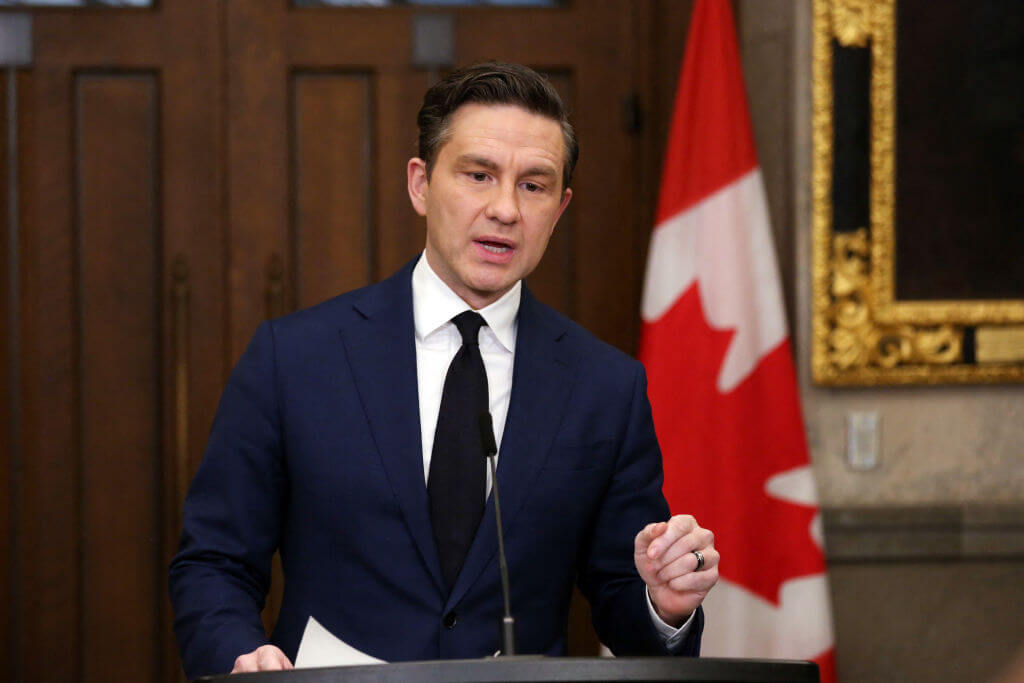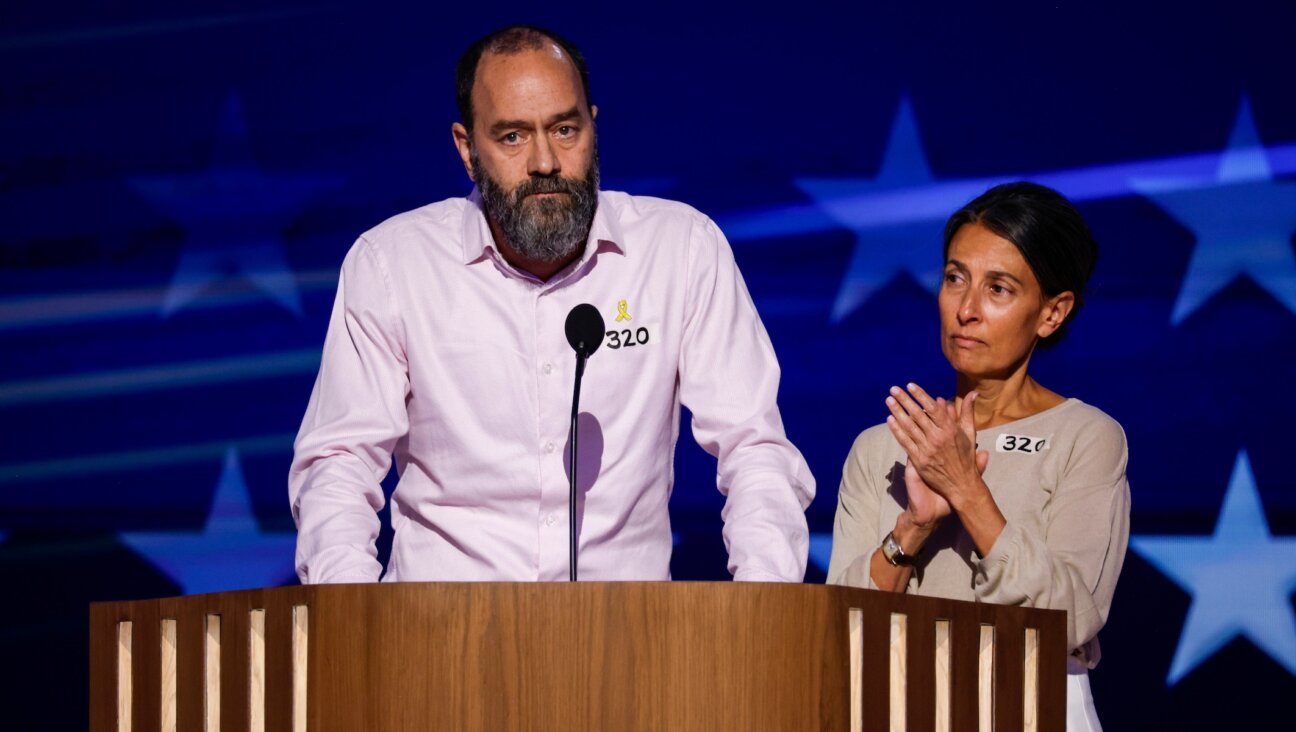Obama, Clinton Battle for Endorsements
In the wake of an unexpected scuffle during last Monday’s CNN/YouTube debate, presidential contenders Hillary Clinton and Barack Obama waged a pitched battle over endorsements from Jewish members of Congress.
During the televised forum, the Democratic contenders disagreed sharply over whether the next president should commit, without precondition, to holding talks with leaders of such rogue states as Iran within the first year of taking office, with Obama saying yes and Clinton no.
Last Wednesday afternoon, within just hours of each other, the two camps announced new endorsements. Clinton lined up the support of Senator Dianne Feinstein of California, and Obama got the backing of Rep. Steve Rothman of New Jersey. On Thursday, the Obama campaign added Rep. Paul Hodes, a freshman from New Hampshire, as a national co-chair.
“When I look at the different positions of the two candidates, I can see Senator Clinton’s position is, in fact, somewhat closer to the Bush position,” Hodes said in a conference call with reporters. His strategy is to “engage with appropriate preparation, from a position of strength, because we are strong enough to engage our foes in discussions without being or appearing weak.”
In what was one of the most contentious weeks in the Democratic race so far, both camps fought for a public relations advantage.
In a July 24 interview with the Davenport, Iowa-based Quad-City Times, Clinton went on the offensive, branding Obama’s response to the debate as “irresponsible and frankly naive.” Through memos and surrogates, including former secretary of state Madeleine Albright, the Clinton campaign repeatedly sought to highlight what it billed as the New York senator’s superior grasp of the subtleties of foreign policy. Two days later, Obama had branded Clinton as “Bush-Cheney lite.” Both camps suggested that the other had flip-flopped on the issue of whether to engage foes directly.
Some commentators noted a shift in the campaign’s tone.
“Both sides have determined that there is a need to create strong distinctions,” said Hank Sheinkopf, a New York-based Democratic consultant who worked on Bill Clinton’s 1996 re-election campaign. “The real issue is who they are speaking to. She is speaking to an older audience; he is speaking to a younger audience.”
So far Clinton leads the race for Jewish endorsements.
In addition to Feinstein, the New York senator has backing from the entire New York delegation, which includes six Jewish members of Congress, as well as Rep Jane Harman of California, Rep. Allyson Schwartz of Pennsylvania and Florida Rep. Debbie Wasserman Schultz, the campaign’s national co-chair.
Obama’s congressional Jewish supporters include Rep. Jan Schakowsky, from his home state of Illinois, and Rep. Robert Wexler, who is co-chairing his campaign in Florida.
Several Jewish Democratic lawmakers with significant foreign policy credentials have stayed on the sidelines during the Clinton-Obama scuffle, including California Rep. Tom Lantos, chairman of the House Committee on Foreign Affairs.
According to spokeswoman Lynne Weil, Lantos — who has led several diplomatic missions to both Syria and Libya — agrees with the principle of direct engagement. Lantos’s office did not return a call for comment on the issue of whether the next president should commit to unconditional talks with foes.
Rothman said he finalized his decision to back Obama after holding a one-on-one meeting with the senator last Wednesday.
“I wanted to confirm again, with him, my understanding of his views about the need to safeguard Israel’s security, to keep Israel’s qualitative military edge and to assure myself that everything my friends in Chicago and in the Senate, that all the things they’ve said about him on Israel, are true — namely that he understands how vitally important to America a strong Israel remains,” Rothman said in an interview with the Forward.
The lawmaker insisted that Obama’s candidacy “represents new vs. old thinking,” even as he sought to minimize the suggestion of substantial differences between Obama and Clinton on foreign policy.
“Neither Senator Obama or Senator Cllinton would be sitting down with [Iranian President Mahmoud] Ahmadinejad in the first weeks or months of their presidencies,” Rothman said. He added that Obama “is nobody’s fool, and he’s a very tough guy, so he will not fall into any traps, public relations-wise or otherwise, that, for example, Senator Clinton is so concerned about.”
In his conference call last Thursday, Hodes told reporters that he had been mulling an endorsement of Obama “for some time.”
“He and I spoke over the weekend [before the debate], and I decided that now was a good time for me to make the move and that I thought it was a chance for me to be helpful,” Hodes said.
The New Hampshire lawmaker, who is slated to visit Israel in this month, praised Obama as “moving forward to talk about a new way of engaging the world,” and criticized the Bush administration for refusing to attempt direct discussions with Tehran about how best to stabilize the region.
“As I recall, it was James Baker, who in the context of talking about the Iraq Study Group… was clear that we needed to talk,” Hodes said.
A message from our Publisher & CEO Rachel Fishman Feddersen

I hope you appreciated this article. Before you go, I’d like to ask you to please support the Forward’s award-winning, nonprofit journalism so that we can be prepared for whatever news 2025 brings.
At a time when other newsrooms are closing or cutting back, the Forward has removed its paywall and invested additional resources to report on the ground from Israel and around the U.S. on the impact of the war, rising antisemitism and polarized discourse.
Readers like you make it all possible. Support our work by becoming a Forward Member and connect with our journalism and your community.
— Rachel Fishman Feddersen, Publisher and CEO





















